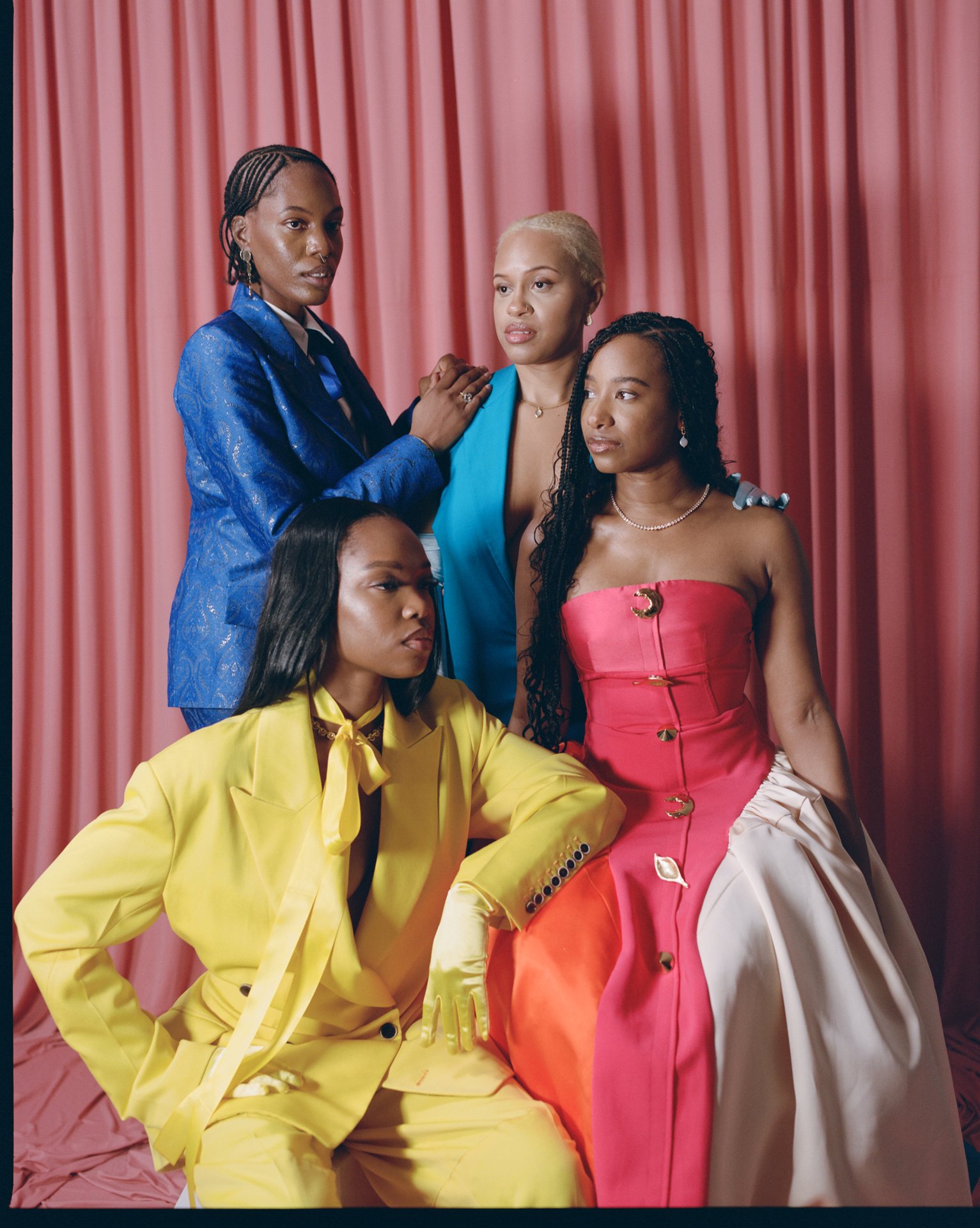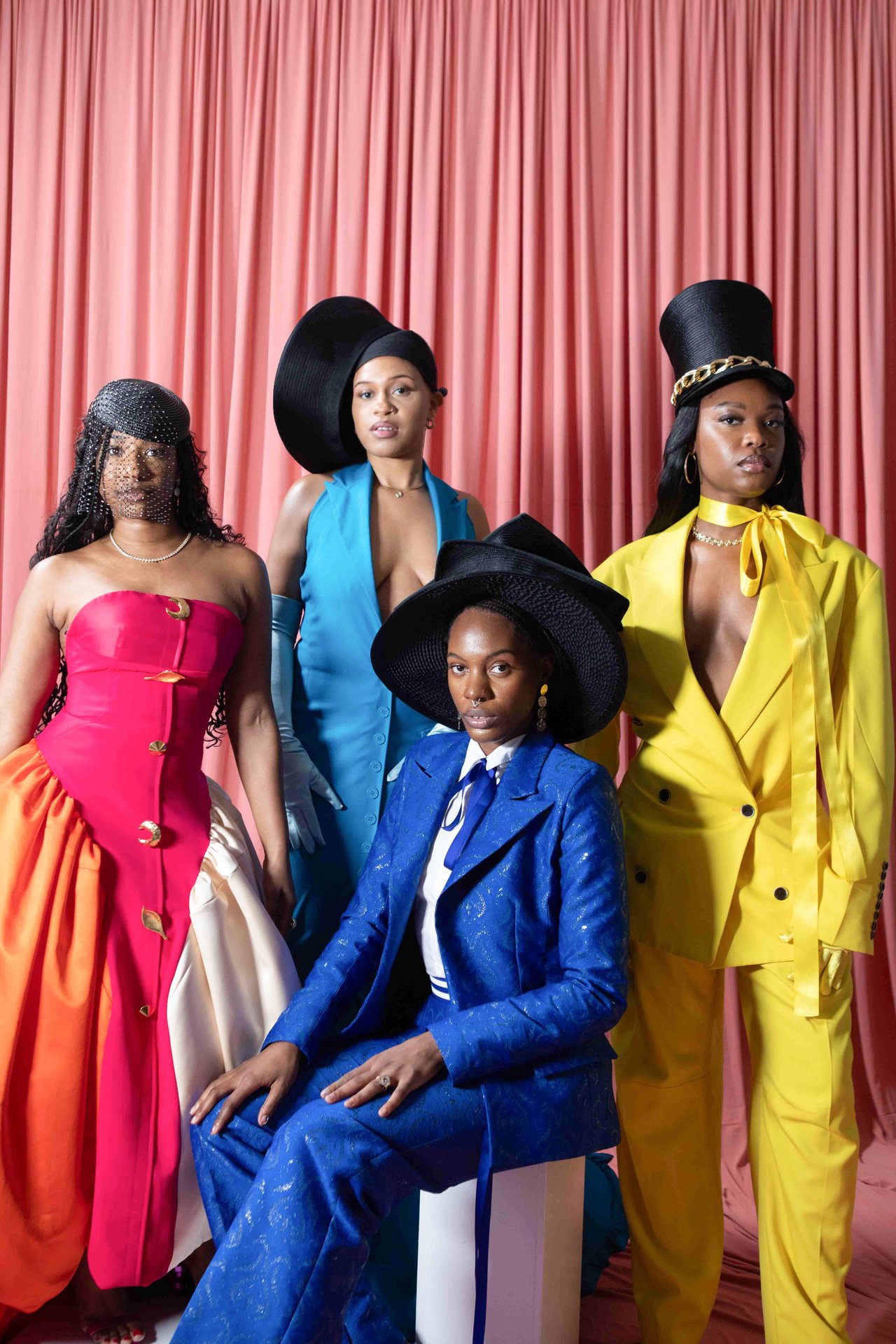In America, the Black baptist church is a spiritual space for people who are motivated to uphold themselves with dignity and elevate their values and moral compasses guided by their faith, praise, testimonies, and gratitude. To that end, it is tradition for Black baptist church members, especially women, to dress up in their “Sunday’s best” for every worship service as a way to honor not only God but also themselves.
For many Black designers, this Sunday’s best tradition has inspired and influenced their brand identities. Oftentimes, it is the spiritual morals passed down from generations of Black church mothers like Suffragist and Religious Leader Nannie Helen Burroughs and Legendary Gospel Singer Mahalia Jackson, who pivoted how Black women were overlooked and committed to advocating for social justice during women’s suffrage and the Civil Right Movement.
“Watching the women who raised me is why I am a fashion designer today,” Charles Harbison said, pointing to ‘their joie de vivre and sexual confidence contrasting with the blue-collar reality of their lives…their armor and shield, sword and dagger, in the form of suits, clutches, earrings, and sheaths. The mutability and dimensionality of those women are driving forces behind Harbison Studio’s brand identity.”
Mother-and-daughter duo Rebecca Henry and Akua Shabaka’s House of Aama is an experiential brand rooted in the Black experience.
“We explicitly focus our research, archival analysis and data collection on the examination of the lives and lived experiences of Black people,” they said.
“How Black women have presented themselves historically and in the present time is a continuous focus of our brand including Sunday’s best dress presentations. Black women have continued to find a way out of no way — the Sunday best dressing practices of our culture are an example of [that]. No matter what the week presents in terms of opportunities and challenges, on Sunday’s, Black women put their best foot forward, dress their best, hold their heads up, praise their ancestors, and meet life head on.”
Whether it be ministry or fashion, Black women have been denied prominent roles while men occupy the majority of the leadership positions. In her “The Negro Woman” speech, Nannie Helen Burrough spoke about how Black women were the most neglected and disrespected person in America On January 15, 1923. She focused on gender equality for women within the church as she led social protest, while advocating for the rights of Black people.
“Black women have always uniquely focused on our presentation and how we present ourselves as a key component of our identity from ancient times until today,” Rebecca and Akua added. “In fashion, Black women have claimed a space for themselves that is not costuming but putting on display a unique aspect of our culture where we come and represent. As Black women founders of a fashion label it is in our ethos to represent Black women and continue to advocate for our unique perspectives and voices to be heard.”
There is no doubt that Black women have resiliently been the backbone of our nation as the caregivers and nurturers, supporting all people and carrying the burdens of many, it is embedded in America’s history. During the Civil Rights Movement in the 1960s, Mahalia Jackson touched leaders including Martin Luther Kings Jr., who often leaned on Jackson’s heartwarming voice to uplift his spirits. Not only did her voice in “How I Got Over” bring the masses comfort but also she contributed tremendous donations in support of the movement.
Black women are recognized for their innate resilience as they rarely wear what they are going through on their sleeves. Instead, they are wearing innovative styles, adorning their bodies in unique dress, and presenting the best version of themselves. Today more than ever, designers are encouraged to return the favor, advocating for Black women’s influential presence, craft, and style.
“Women across cultures have used fashion to assert and fortify themselves for generations. That is also inherent to almost any identity that experiences marginalization,” Harbison said. “I am blessed to come from a lineage of Black women who are particularly familiar with the power of colors, body positivity, and glamour. I will always advocate for that, because that is also me.”
Since Ancient Africa, from The Ancient African Queen Nefertiti’s headdress to Black women’s extraordinary church hats and distinctive hairstyles, Black women have reigned as the influencers of fashion. Black women have indeed leveraged fashion and innovation to create their own lane and visibility in marginalized communities in America.


